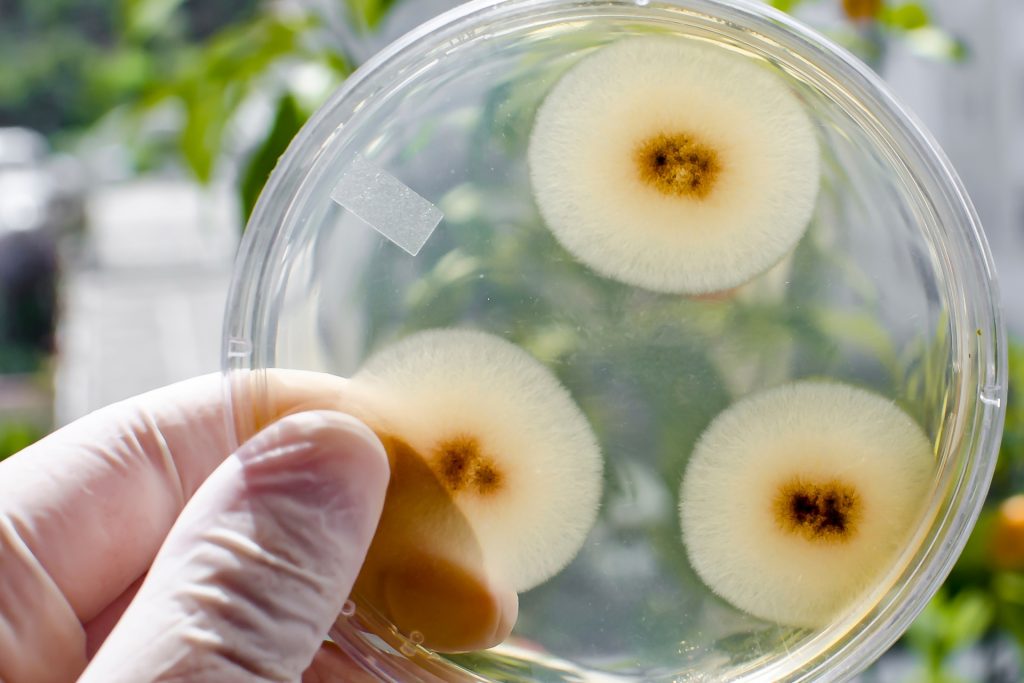Introduction
Mushrooms play a crucial role in the environment as nature’s recyclers, contributing to the breakdown and decomposition of organic matter. As saprophytic organisms, mushrooms thrive on decaying plant and animal material, acting as vital agents in nutrient cycling. Their mycelial networks, the intricate web of fine threads underground, break down complex compounds, aiding in the recycling of nutrients and fostering soil health. Beyond their role as decomposers, certain species of mushrooms possess remarkable abilities to break down synthetic materials, including plastics.
This capacity has sparked interest in their potential to contribute to waste management and environmental cleanup. Sourcing mushrooms from diverse ecosystems is vital, as different species exhibit unique capabilities in breaking down specific materials. Exploring and understanding the rich biodiversity of mushrooms is essential for harnessing their full potential in addressing environmental challenges and promoting sustainable practices.
The answer for Plastic Pollution?
In a world grappling with the environmental consequences of plastic pollution, a groundbreaking discovery has emerged from the scientific realm: fungi that devour hard-to-recycle plastics. This revolutionary finding, detailed in a recent article from the University of Sydney, sheds light on a potential game-changer in the fight against plastic waste.
The article highlights a study led by researchers at the University of Sydney, where they discovered that certain fungi Aspergillus terreus and Engyodontium album possess the remarkable ability to break down and consume polyurethane, a notoriously difficult-to-recycle plastic commonly found in products like car parts, insulation, and foams. This newfound capability has the potential to reshape our approach to plastic waste management.
Polyurethane has long been a challenge for traditional recycling methods due to its complex molecular structure and resistance to degradation. Conventional recycling processes often fall short in effectively breaking down polyurethane, leading to its accumulation in landfills and oceans. However, the fungal species identified in this study demonstrate an inherent ability to feed on and decompose this stubborn plastic.
The researchers identified the specific enzymes responsible for breaking down polyurethane within these fungi. This knowledge opens the door to the development of targeted enzymatic treatments or bioengineered solutions that could accelerate the decomposition of hard-to-recycle plastics.
Reducing our reliance on landfills
One of the most promising aspects of this discovery is its potential application in real-world scenarios. Imagine a future where plastic waste, particularly polyurethane-based products, can be effectively managed and transformed into environmentally benign byproducts through the power of fungi. This could significantly reduce our reliance on landfills and mitigate the impact of plastic pollution on ecosystems.
The implications extend beyond waste management, reaching into the realms of sustainability and circular economies. By harnessing the natural capabilities of fungi to tackle hard-to-recycle plastics, we may be on the brink of a paradigm shift in how we approach material life cycles. The integration of such solutions into industrial processes could pave the way for more eco-friendly and sustainable manufacturing practices.
As we navigate the challenges posed by plastic pollution and its impact on the planet, this fungal breakthrough offers a glimmer of hope. It exemplifies the potential of nature-inspired solutions to address complex environmental problems. The collaboration between science and the natural world opens new doors for innovation and underscores the importance of preserving and understanding our planet’s biodiversity.
Conclusion
The fungi making a meal of hard-to-recycle plastics represents a beacon of optimism in our quest for sustainable living. This discovery not only showcases the resilience and adaptability of nature but also provides us with a powerful tool to reshape our relationship with plastic waste. As we continue to explore and harness the potential of fungi, we may find ourselves on the cusp of a plastic revolution that transforms the way we view and manage one of the most pressing environmental challenges of our time.
